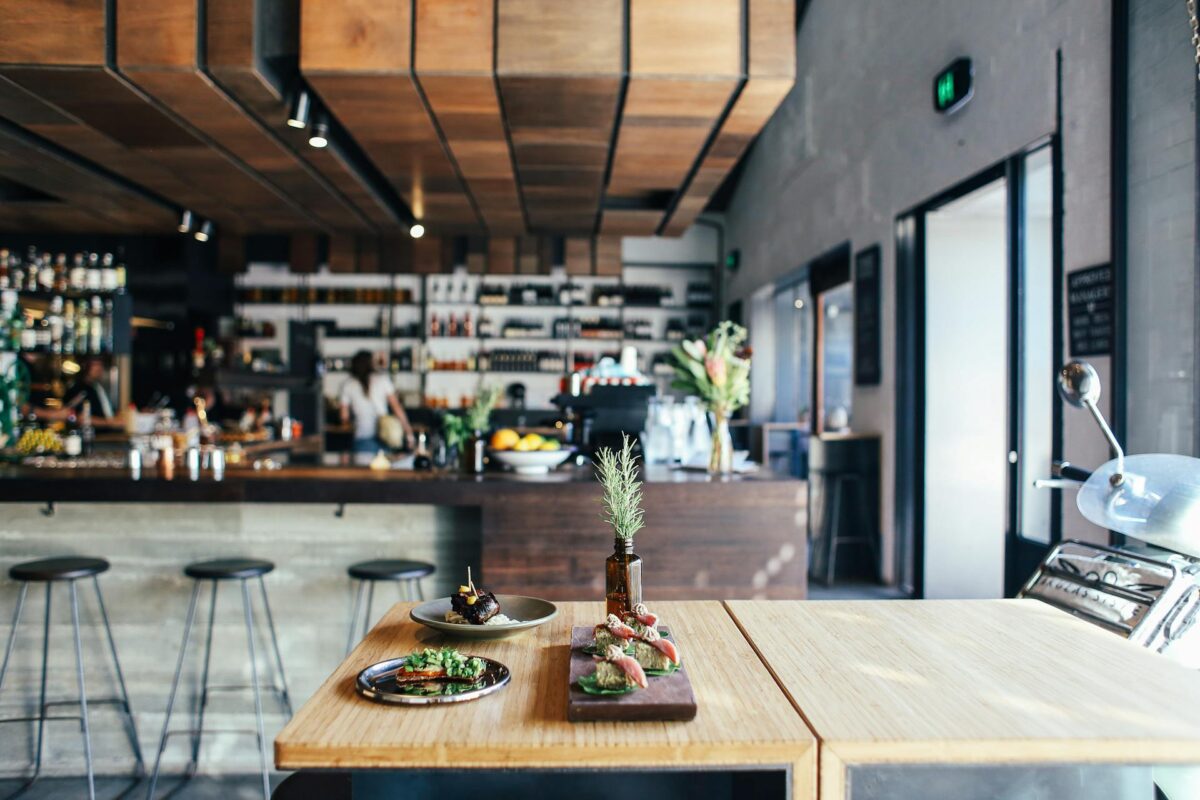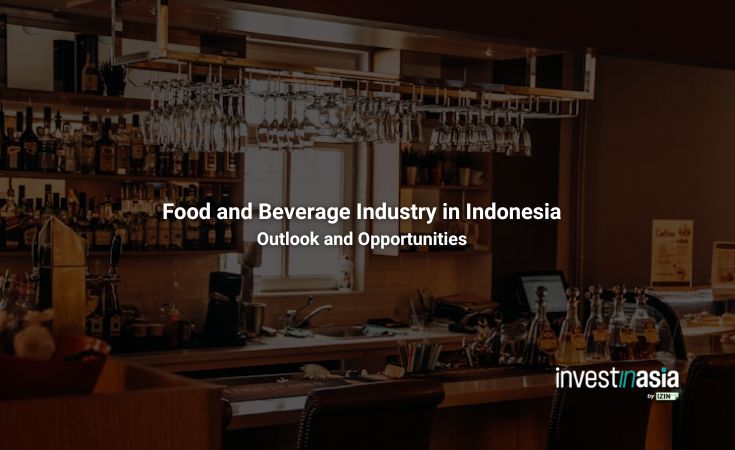The food and beverage (F&B) industry in Indonesia has become one of the most attractive sectors for foreign investors, thanks to its strong economic contributions, a growing consumer base, and expanding business opportunities.
This article delves into the industry’s outlook, potential opportunities, regulations, key players, and a roadmap to establish a successful F&B company in Indonesia.
Also read: Major Industries in Indonesia (Based on Contribution to GDP)
Indonesia Food and Beverage Industry Outlook


Indonesia’s F&B sector plays a pivotal role in the national economy, contributing 7.15% to the GDP in the first half of 2024. The sector is projected to grow by 4.53% by the end of the year, driven by robust domestic demand and rising exports. Packaged food and beverage sales reached an impressive USD 40.11 billion (IDR 601.65 trillion) in 2023, showcasing the market’s resilience and growth potential.
The industry’s growth is supported by Indonesia’s population of over 275 million, which is expected to surpass 281 million by 2025. Urbanization and increasing incomes are shifting consumer preferences towards convenience foods, health-conscious products, and innovative offerings such as plant-based and organic options.
Despite challenges like rising production costs and logistical constraints, the sector’s upward trajectory underscores its importance to Indonesia’s economy and its appeal to foreign investors.
Also read: 10 Reasons Why You Should Invest in Indonesia
Food and Beverage Business Opportunities in Indonesia
Foreign businesses can capitalize on several key opportunities in Indonesia’s F&B sector:
- Processed Food Exports: Products like packaged snacks, ready-to-eat meals, and beverages align with urbanized lifestyles.
- Raw Material Imports: Indonesia relies on imported goods such as wheat, dairy, and processed foods, creating opportunities for suppliers.
- Cold-Chain Solutions: Given limited refrigeration infrastructure, shelf-stable products perform well, while frozen foods present long-term growth potential as cold-chain logistics improve.
- Halal Market Expansion: With a majority-Muslim population, demand for halal-certified products remains robust.
Indonesia Food and Beverage Business Regulation


Here are some things related to the regulation of the F&B industry in Indonesia that you should know:
Regulatory Landscape
Foreign businesses must navigate a complex regulatory environment to enter the Indonesian market. Requirements such as Halal certification, labeling in Bahasa Indonesia, and adherence to local food safety standards are essential for compliance. The government is also pushing for self-sufficiency in raw materials through policies that support local sourcing.
Tax and Import Policies
The proposed 12% Value Added Tax (VAT) in 2025 is expected to increase production costs. Furthermore, unbalanced import tariffs—high taxes on raw materials and tax-free entry for some finished goods—pose challenges for local producers. However, government incentives for reducing import tariffs on critical raw materials and adopting Industry 4.0 practices aim to support the sector’s growth.
Infrastructure Challenges
Limited cold-chain infrastructure and logistical inefficiencies remain hurdles, particularly outside Java. Businesses must plan for these challenges by investing in supply chain innovations and ensuring stable inventory levels to meet demand.
Also read: Indonesia Investment Incentives: Government Support for Foreign Businesses
Leading Food and Beverage Companies in Indonesia
Indonesia hosts several prominent players in the F&B sector, such as:
- Indofood: A leader in instant noodles and packaged food production.
- Mayora Group: Known for biscuits, coffee, and candies, catering to both domestic and export markets.
- Nestlé Indonesia: Focused on dairy products, beverages, and baby food.
- GarudaFood: Renowned for snacks and beverages, with an expanding regional presence.
These companies set benchmarks for quality, innovation, and market reach, providing valuable insights for new entrants.
Also read: BPOM Indonesia Food Regulation: Ensuring Safety and Quality
How to Start a Food and Beverage Company in Indonesia
For foreign investors, entering the Indonesian F&B market requires careful planning:
- Market Research: Understand consumer preferences, particularly the demand for local flavors, small packaging, and sweeter taste profiles.
- Legal Compliance: Partner with local legal experts to navigate complex regulations, including product registration and halal certification.
- Distribution Strategy: Leverage partnerships with local distributors and retailers to ensure market penetration.
- Infrastructure Investments: If dealing with frozen or chilled products, prioritize investments in cold-chain logistics.
The Indonesian F&Bindustry is a rapidly growing sector with a number of investment opportunities. If you are considering starting a F&B business in Indonesia, there are a number of resources and support services available to help you get started.
InvestinAsia is among the companies that specialize in aiding you with Indonesia company registration. We boast a team of seasoned experts who can guide you throughout the process of:
- Foreign company / PMA registration in Indonesia
- Indonesia representative office registration
- PT PMDN Set Up
- Virtual office setup in Indonesia
- Business registration number in Indonesia
- Indonesian Business Licenses
- Indonesia Trademark Registration
If you are interested in starting a business in Indonesia, you can start by contacting us for FREE consultation.
Sources:




